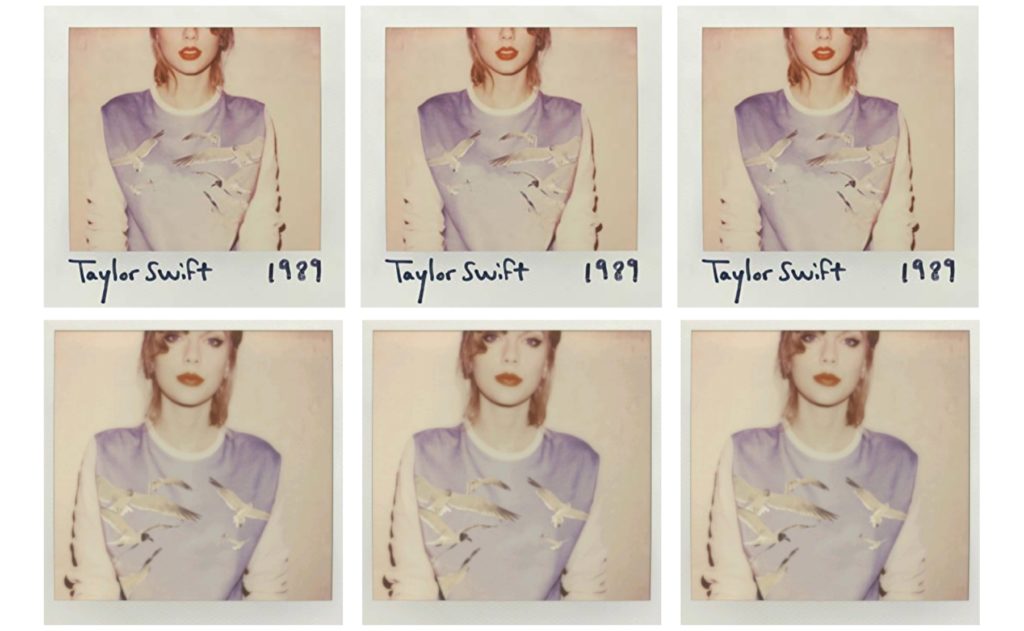“It is one of the oldest and hardest lessons of the music industry: No matter how successful artists may be, chances are someone else owns their work,” at least their earliest work, the New York Times’ Ben Sisario and Joe Coscarelli aptly noted on Monday, reflecting on the social media fury that is Taylor Swift v. Scooter Braun. The gist of it all is this: Over the weekend, music mega-manager Scooter Braun’s Ithaca Holdings announced it is acquiring Big Machine Label Group, the label that was behind all of Swift’s studio albums up until Reputation, and that holds the master rights for the six albums that Swift released until late 2017.
Upon learning that Braun is the one acquiring her old record label Big Machine from owner Scott Borchetta, Swift took to her Tumblr to share a lengthy blurb, noting, “This is my worst case scenario. When I left my masters in [Borchetta’s] hands, I made peace with the fact that eventually he would sell them. Never in my worst nightmares did I imagine the buyer would be Scooter,” who – per Swift – has spent years engaging in “incessant, manipulative bullying.”
Swift, whose recording contract with Big Machine ended last year, claims that she was offered the opportunity to earn back the rights to those six albums one at a time if she re-signed with Big Machine, but declined to do so, opting to partner with Universal Music Group, a deal in which she will own the master rights for future songs.
In terms of Braun, who currently manages the likes of Justin Bieber and Ariana Grande, 29-year old Swift says her “musical legacy is about to lie in the hands of someone who tried to dismantle it.”
More than a case of social media-centric team-picking, which is precisely what is at play with various celebs choosing sides and speaking out, Swift’s message speaks of a longer running battle that is much bigger than herself and Braun. It is one that centers on the complexities of music rights and the ownership of those rights.
In the U.S., a single song really consists of two protected elements: the master sound recording (the copyright for which is typically held by a record label), and the underlying written music composition (the copyright for which is typically held by the artist and his/her publisher). Using Swift’s “Look What You Made Me Do” single as an example, the rights in the master sound recording are almost certainly held by her former record company, Big Machine Records. As for the underlying composition of the song, that is held by Swift, likely along with co-writer Jack Antonoff and her publisher.
(It is worth noting that the situation becomes more intricate given the fact that before the holder of a master sound recording may license a song to third-parties, such as for a movie or video game, he/she generally must obtain authorization from the written music composition rights holder).
At issue here are the rights in the master recordings, which young artists – such as a 15-year old Swift – typically sign away the rights to in exchange for an upfront payment from the record label (in order to make the album), followed by royalties from future sales.
“Historically artists were made to give away these rights [as a condition of signing a record deal],” Jordan Bromley, a music lawyer at Manatt, Phelps & Phillips LLP, told the Wall Street Journal. And that long-standard industry practice is precisely what has given rise to an array of headline-making battles that long pre-date Swift, maybe the most well-known of which came by way of the late Prince, who famously feuded with Warner Music over ownership of his music.
After a nearly 25-year feud, which included a name change – to the unpronounceable “Love Symbol” – and regular uses of the word “slave” to describe his perceived role in the relationship, Prince received ownership of his catalog back from the company in 2014 – in exchange for releasing new albums through Warner Bros. Records – and the legal rights stemming from that ownership.
As for Swift, she says she hopes that “young artists or kids with musical dreams will read this and learn about how to better protect themselves in a negotiation.” More than that, though, young artists are in need of leverage in negotiations and options from the outset … and/or alternative ways of recording and releasing their music outside of the traditional music model. This is coming into fruition, particularly over the past decade, thanks in large part to the fact that “now there are dozens of ways to distribute music and countless ways fans discover it outside of a major label or any label marketing regime,” Bromley says.
This comes in rather stark contrast to the traditionally limited distribution options and the largely one-sided contract terms that inevitably come hand-in-hand with that.













